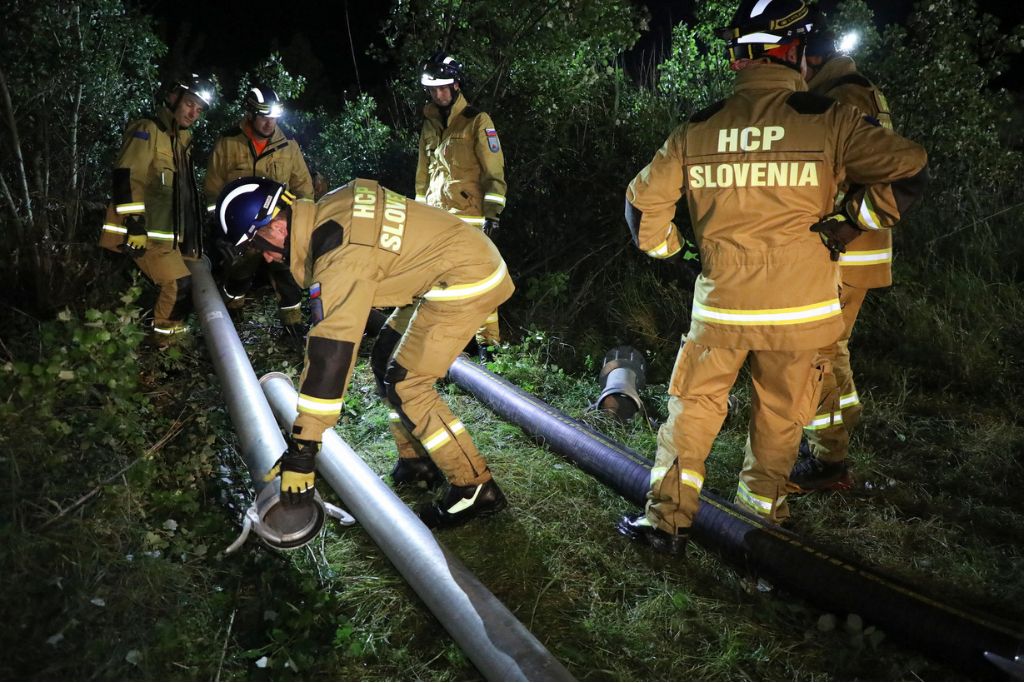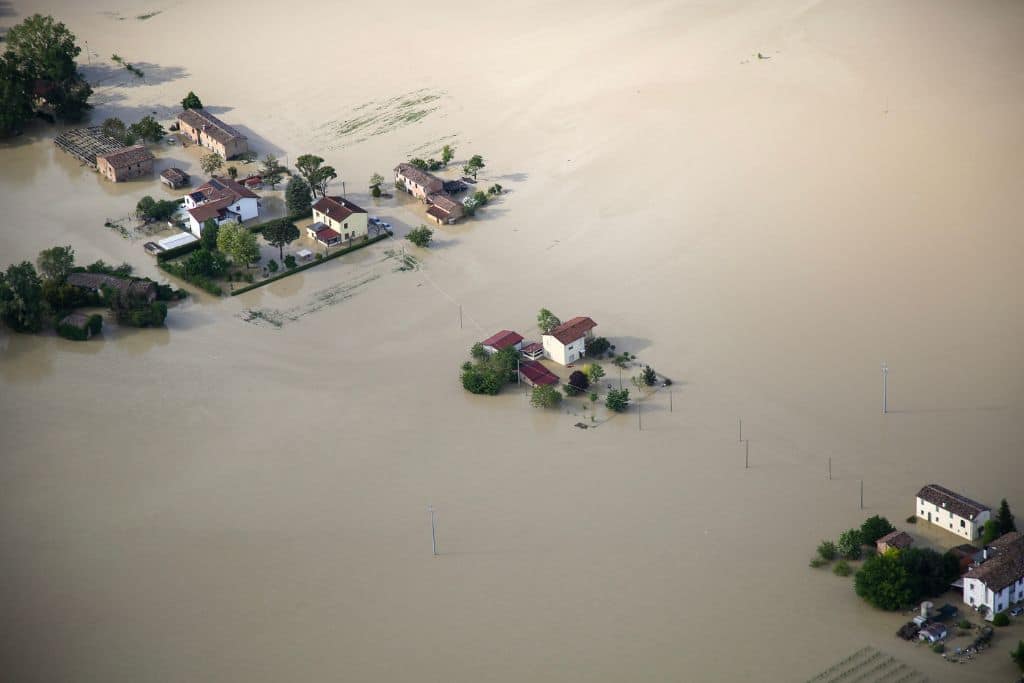Floodwater from the torrential rain that battered Italy’s northern region of Emilia-Romagna last week, killing 14 people and displacing tens of thousands, could rot the roots of almost 15 million fruit trees. The floods come after months of drought that had already brought farmers in Italy’s North to their knees.
—
Italy’s region of Emilia-Romagna remains on red alert as thousands of volunteers work relentlessly to clean mud and debris from the streets and assist people in shelters and isolated areas following last week’s deadly floods.
14 people lost their lives and around 36,000 were left homeless as six months’ worth of rain fell within 36 hours across Emilia-Romagna and Marche, leading to more than 20 rivers across the region to burst their banks, wreaking havoc across 100 cities and towns. Authorities recorded more than 305 landslides which damaged or forced the closure of about 500 roads.
According to estimates by Coldiretti, Italy’s main farmers’ association, more than 5,000 farms and tens of thousands of hectares of farmland were submerged. The extensive crop damage is expected to cost the government some €1.5 billion (US$1.62 billion), as Coldiretti warns that stagnant water in fields risks rotting the roots of approximately 15 million fruit trees and destroying at least 400 million kilograms of wheat.
Emilia-Romagna is among Italy’s most fertile areas – accounting for a third of the country’s total fruit harvest. The region is the largest producer of pears, peaches, nectarines, apricots, and plums as well as the second-largest producer of cherries and kiwi.

Emergency personnel and volunteers from all over the country and abroad have been working relentlessly to clear the streets and drain the water in Emilia-Romagna. Photo: Dipartimento Protezione Civile.
Premier Giorgia Meloni returned to Italy from Hiroshima, Japan, where she attended the Group of Seven (G7) summit, a day earlier than scheduled to lead the response to flooding.
“I have decided to come back to Italy. Frankly, I can’t stay so far away from Italy at such a difficult time. After two days and more away, my conscience requires me to come back,” she told reporters in a press briefing.
On Sunday, during her visit to Ravenna, one of the hardest-hit cities, Meloni vowed to find the resources needed to support cleanup efforts and assist those displaced, calling upon the European Union’s Solidarity Fund for natural disasters and adding that G7 leaders had also offered their support.
The government will hold a cabinet meeting on Tuesday to discuss measures to support communities and badly battered sectors.
The catastrophic floods came after a long, intense drought had dried out the fertile land, reducing its capacity to absorb water and thus worsening the situation. The lack of precipitation in recent months heavily impacted crops and hydropower energy generation, with reservoirs storing river water destined to be used in hydroelectric plants dropping below the minimum historical values.
Featured image: Dipartimento Protezione Civile/Flickr (CC BY 2.0)
You might also like: Can Traditional Farming Withstand Another Summer of Record-Breaking Heatwaves?


















